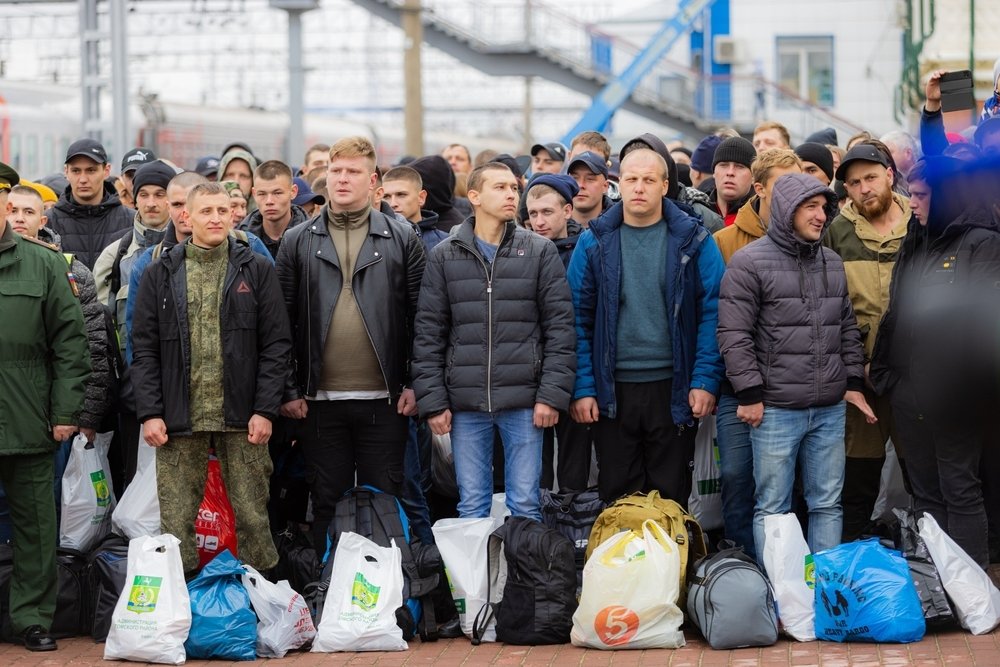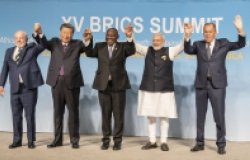
A blog of the Kennan Institute
Russia’s War “Opportunity” Economy

Shutterstock: Dmitriy Kandinsky
Moscow has created an “opportunity economy” of sorts that leverages financial incentives, targeted recruitment, and desperation to fill the ranks of its military, going to remarkable lengths to avoid the backlash of an official mobilization campaign, which remains deeply unpopular in Russia.
For some residents in small-town Russia, war has taken on the guise of seasonal labor—a temporary job akin to what their fathers or grandfathers once pursued. But this system preys on the vulnerable, targeting those trapped in cycles of debt or facing limited opportunities, luring them with extraordinary pay and incentives to take up arms against their neighbors.
“I’d rather make money there. I’d rather earn 200,000 [about $1,900 a month] there than work at a sawmill here,” a woman recounts to a researcher from the Public Sociology Lab, echoing the typical justification men give for choosing war as a temporary job. Her blunt response: “You’d rather work at a sawmill!” This study, based on in-depth interviews with the residents of a small town in the Urals, reveals some gendered differences in perspectives on the war. Men often focus on the opportunities and dangers it presents, while women emphasize concerns about family security. However, both tend to avoid, at least when speaking to an outsider, deeper reflections on the reasons behind or responsibility for their country’s war against Ukraine.
What For
In conversations, residents often express regret over the deaths, especially of younger people. “They just came from the army!” exclaims a young woman, a manicurist. Her colleague adds: “They are sending children to war!” Such discussions occasionally provoke criticism of the military conflict, which places the blame for its outbreak on abstract “strongmen” who achieve their goals at the cost of ordinary lives. The Public Sociology Lab’s researchers Ilya Roshal and Sasha Kappinen, analyzing these discourses, note that while this criticism highlights the human cost of war, it stops short of directly challenging the Russian government. Despite the clear link between government decisions and the war, the question of individual responsibility is conspicuously absent from these discussions.
Part of the explanation may lie in the fact that many of those signing contracts with the Ministry of Defense do it out of desperation rather than ambition to break free from mediocrity or simply to make a quick ruble. The government not only presents war as an “opportunity” for a better life but also aggressively promotes it through administrative pressure, prisoner pardons, financial incentives, and targeted ads.
The Russian government began recruiting convicts in the summer of 2023. Initially, recruitment was carried out by the private military company Wagner, but the practice has since been taken over by the Defense Ministry. While the exact figures remain classified, the numbers are significant enough that some of Russia’s penal colonies and prisons have become redundant and are now being shut down. According to Olga Romanova, founder of the NGO Russia Behind Bars, approximately 200,000 prisoners either have participated in the war or are still fighting.
Desperation Economy
The government is actively targeting other vulnerable social groups for recruitment. Moscow has instructed regional authorities to prioritize enlisting individuals burdened by debt or bankruptcy, migrants, the unemployed, those under investigation, and people recently released from prison. “Nearly half of those recruited outside of penal colonies and prisons are carrying overdue debts exceeding 50,000 rubles,” note analysts from the Conflict Intelligence Group in a recent study.
There is a direct link between the amount of debt in a given region and the number of those willing to go to war. For example, the regions of Karachay-Cherkessia and Adygea have the highest payments for signing a contract, and these same regions are among the top ten in terms of the share of overdue debts to banks, writes Xenia Buksha in Novaya Gazeta Europe in a piece titled “The Economy of Desperation.”
Microloan debt is another significant driver of recruitment. Nearly half of all microloan borrowers spend more than 40 percent of their monthly income on debt servicing. For many, it is not just a life of living paycheck to paycheck but one of constant reborrowing to stay afloat. Authorities specifically target this group with tailored advertisements. In one such ad, a middle-aged man and former soldier realizes he cannot afford to buy a smartphone for his daughter. Worse, he ends up borrowing money from her piggy bank. Determined to change his circumstances, he enlists in the military and, six months later, returns home with a brand-new smartphone.
Moscow offers significant incentives aimed at those in debt. Recently, President Vladimir Putin signed a law allowing writing off up to 10 million rubles of debts on overdue loans for participants in military operations. The law, set to take effect in December, applies to cases where debt collection proceedings are already underway or enforcement measures have been initiated. However, it does not cover the principal amount of the debt. Additionally, the legislation extends the suspension of debt payments for enlisted individuals to 180 days. In cases where the borrower dies or is classified as having a first-group disability, the government commits to writing off the debt in full.
How Much
Given Russia’s average incomes, military contracts offer extraordinarily high pay. Regional governors compete by offering substantial enlistment bonuses to new recruits. The governor of Ulyanovsk recently raised the bonus to 1.5 million rubles ($13,200). In August, Moscow introduced a one-time payment of 1.9 million rubles ($16,700). Ads in Moscow promise recruits an annual income of 5.2 million rubles ($46,000), according to Re: Russia. Nationwide, the average contract worker earns around 3.6 million rubles per year ($32,000).
These figures represent a significant increase over regular earnings. In Moscow, the annual contract income is five times higher than the average salary, and for the rest of Russia, it is 3.5 times higher. The current average annual income from monthly salaries stands at just 1.02 million rubles ($11,000). In the event of a contract worker’s death, their family is entitled to compensation ranging from 11 to 19 million rubles ($97,000 to $168,000).
The numbers of those recruited through these schemes are not known, but according to the Conflict Intelligence Group estimate, about 426,000 individuals received those one-time bonuses. In the first half of 2024, the monthly number of volunteers was 30,000 people, a number close to the estimates by the U.S. and UK intelligence services, which put the number of volunteers in the range of 25,000–30,000.
What began as a politically expedient attempt to avoid the unpopularity of a formal mobilization has morphed into a system that exploits human vulnerabilities and preys on desperation. By leveraging debt, poverty, and the limited prospects of Russia’s most marginalized citizens, Moscow has created a monstrous mechanism that turns personal hardship into cannon fodder. This "opportunity economy" is not just a recruitment strategy—it is a reflection of a government willing to sacrifice its people’s dignity and lives to sustain its war machine. The cost is borne not only on the battlefield but also in the erosion of society itself.
The opinions expressed in this article are those solely of the author and do not reflect the views of the Kennan Institute.
See our newest content first.
Subscribe to receive the latest analysis from the Russia File.
About the Author

Maxim Trudolyubov
Editor-at-Large, Meduza
Maxim Trudolyubov is a Senior Fellow at the Kennan Institute and the Editor-at-Large of Meduza. Mr. Trudolyubov was the editorial page editor of Vedomosti between 2003 and 2015. He has been a contributing opinion writer for The International New York Times since the fall of 2013. Mr. Trudolyubov writes The Russia File blog for the Kennan Institute and oversees special publications.
Read More
Kennan Institute
The Kennan Institute is the premier US center for advanced research on Eurasia and the oldest and largest regional program at the Woodrow Wilson International Center for Scholars. The Kennan Institute is committed to improving American understanding of Russia, Ukraine, Central Asia, the South Caucasus, and the surrounding region though research and exchange. Read more











